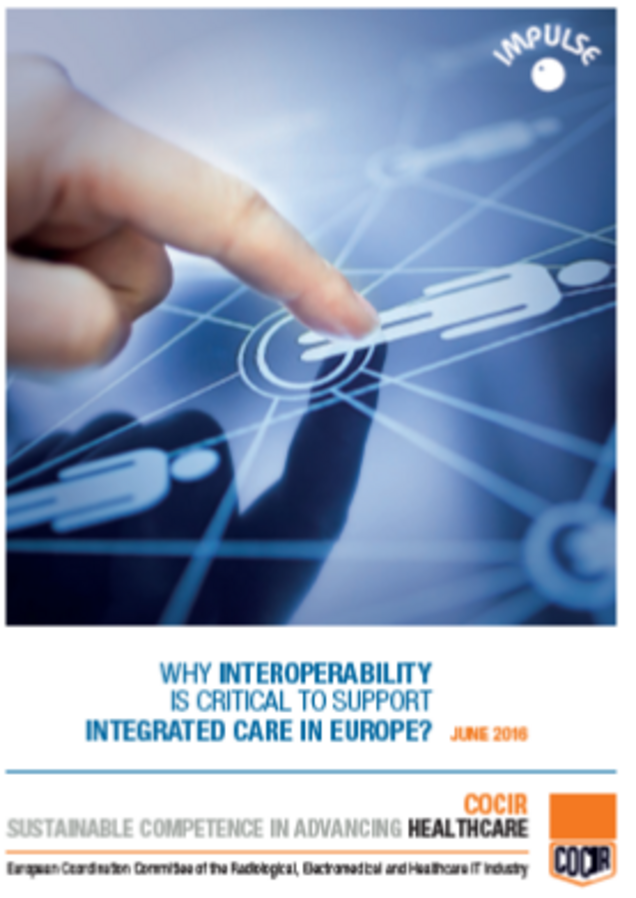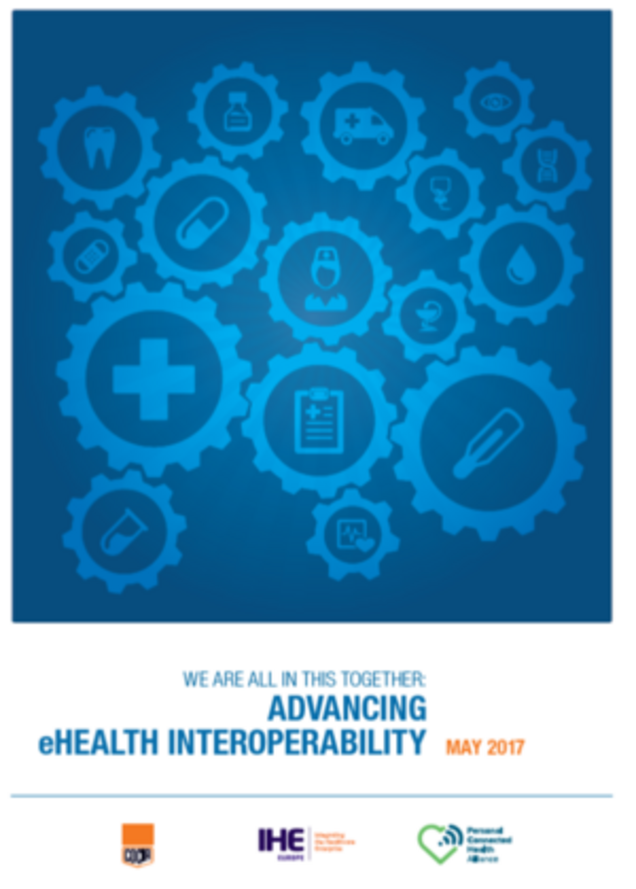Interoperability
The lack of interoperability is one of the major barriers to the deployment of Digital Health. Interoperability means the ability of two or more systems to use and exchange data between them.
Interoperability of digital health solutions leads to
- Easier and faster access to patient’s information
- Better diagnosis, better quality of treatment, better patient safety
- Improved cost efficiency
- Increased consumer choice and enhanced competition
- More end-to-end security for data transfers
There are three levels of interoperability
1. Organisational interoperability refers to the broader environment of laws, policies, procedures and bilateral cooperation needed to allow the seamless exchange of information between different organisations, regions and countries.
2. Semantic interoperability refers to the ability to ensure that the precise meaning of exchanged information is interpretable by any other system or application not initially developed for this purpose.
3. Technical interoperability refers to the ability of two or more ICT applications to accept data from each other and perform a given task in an appropriate and satisfactory manner without the need for extra operator intervention.
Interoperability is one of the essential keys to unlock big data analysis and artificial intelligence applications.
COCIR has been developing efforts to build awareness on the benefits of interoperability at national, regional and local levels and how to achieve it through the use of existing and recognised standards and profiles.
In this respect COCIR welcomes the Commission’s Recommendation on the European exchange format for Electronic Health Records.
Read our COCIR White Paper “Why Interoperability is Critical to Support Integrated care in Europe”.
Read our COCIR – IHE Europe – PCHAlliance joint paper “We Are All in This Together: Advancing eHealth Interoperability”.
COCIR has been participating in the EURO-CAS project, developing an eHealth Interoperability Conformity Assessment Scheme for Europe, with the aim to promote the adoption and take-up of interoperability testing of eHealth solutions against identified eHealth standards and profiles defined in the Refined eHealth European Interoperability Framework.

